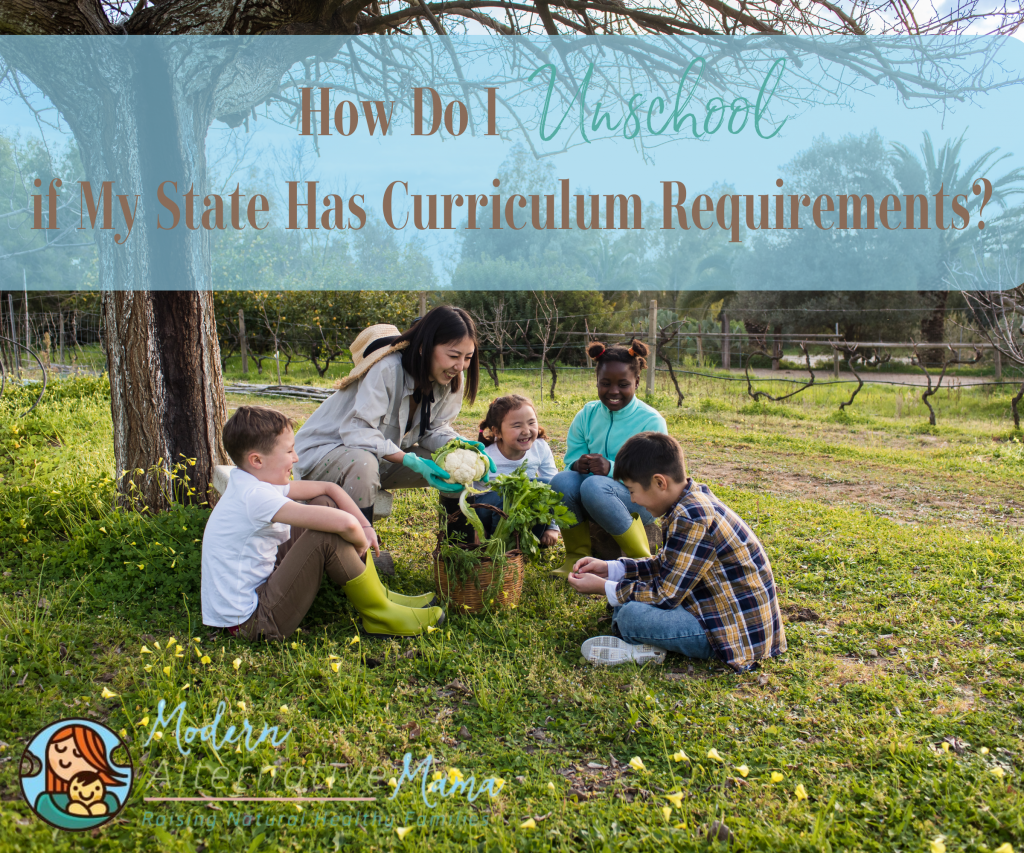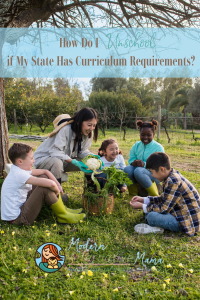By Rustina
Does your child learn best when they really care about a subject, but you are worried your state requirements are too restrictive to allow child led educational plans?
Although it gets a bad rap sometimes, unschooling is an amazing way to teach your children about life and educate them. If your state has curriculum requirements that make your interest in unschooling a concern, there are a few options.
How do I Unschool if your State Has Curriculum Requirements
#1 Research your state regulations
Familiarize yourself with your state’s requirements for homeschooling. This will help you find creative ways to use unschooling principles within the framework of those requirements. Look for statewide parent associations for homeschoolers to connect with others and gain more insight.
#2 Blend the elements
As referenced above, consider blending unschooling and more traditional subjects to meet the curriculum requirements. You can incorporate elements of unschooling practices with reading, writing, and mathematics by using real-world examples, creative games like Minecraft, engineering activities, practical applications, and child-led learning. We learn so much even when we are playing and having fun. Learning shouldn’t be boring and rigid.
#3 Pursue child-led activities
Whether your child is hands on, research ignited, or loves busy work, encourage your child to pursue projects aligned with their interests and passions. Document the learning experiences and outcomes to demonstrate how they align with curriculum requirements. Create journal-like entries to organize the work.
#4 Document learning progress
That leads to keeping records of your child’s learning experiences, including books read, educational outings, field trips, discussions, reviews, and other activities. Documenting your child’s learning progress will help you showcase their educational growth and provide evidence of their development, even if it does not fit the traditional school model.
#5 Use online resources
Add online resources, educational websites, and digital learning platforms to supplement your child’s education. These resources often offer a range of subjects and materials that can support both unschooling and traditional learning requirements. They also often offer prepared documentation of said activities.
#6 Connect with homeschooling communities
Join local homeschooling groups or online communities in your area. Meeting with other homeschooling families can offer support, guidance, and resources to help you navigate the challenges of unschooling within a regulated environment.
Remember to review your state’s specific homeschooling laws and regulations to ensure compliance while incorporating unschooling principles. Each state may have different requirements and expectations, so it’s crucial to understand and adhere to them while finding creative ways to personalize your child’s education.
Further reading about unschooling:
- How Unschooling Works For High Schoolers
- 5 Reasons Unschooling is for You
- Unschooling in the Middle School Years
- What Unschooling Actually Looks Like (For Us)
- Unschooling as Kids Get Older
- Why We’re Re-Evaluating Unschooling (And Our Educational Plans)
- Why We’re Starting a Radically Unschooling Coop
- 8 Responses to People Who Question Unschooling
- A Day in the Life of an Unschooling Family
- Our First “Official” Year of Unschooling: In Review
- 10 Myths About Unschooling
- Our Unschooling Lesson Plans
- What Unschooling Looks Like in Our Pre-K Home
- Our Unschoolers’ 2021 – 2022 Education Plan
- 6 Online Homeschool Resources We Love
- How We Get All Our Homeschooling Materials {Affordably}
- 5 Natural Education Styles You Need To Know About
- Why I Have a Love-Hate Relationship with Homeschool Curriculum
- 7 Ways to De-school Your Mind and Family
- Do Unschoolers Have Holes in Their Education?
- Can Unschooled Kids Really Go to College?
- What My Unschooled Kids Learned Last Year
- What You Need To Know About Learning Styles (and Why It Matters)







